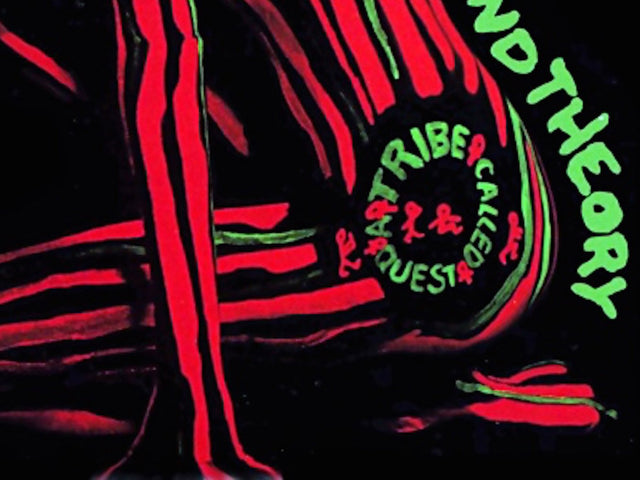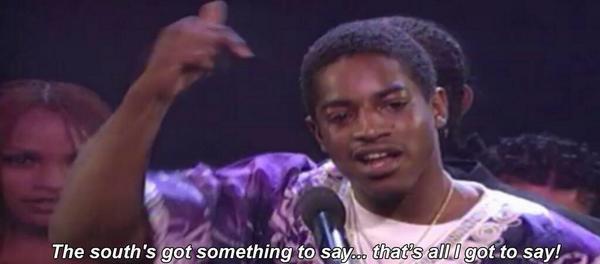Lauryn Hill Gets Out
Unplugged 2.0 On Its 15th Anniversary
It’s hard to understate the level of fame Lauryn Hill carried on her shoulders, that day in July in 2001, when she strode into MTV Studios in Times Square, ready to perform on MTV’s Unplugged series. The show, meant as a storytelling and acoustic live performance, had hosted rappers before (LL Cool J was actually one of the first performers ever), and had artists making appearances that ended up outranking some of their studio material (Nirvana chief among them, but also, uh, Eric Clapton). But Lauryn had something bigger in mind. At the time, she was the most famous rapper on earth not named Eminem--your mom can hum “Doo Wop (That Thing),” ask her--but was in danger of getting left behind as rap became the defining music of the 2000s. Since she had cleaned up at the Grammys in 1999 for Miseducation of Lauryn Hill--she and Outkast remain the only rappers to win an Album of the Year Grammy--she had disappeared in a cloud of rumors and smoke, moving to Jamaica with her partner Rohan Marley (yes, Bob’s son) and apparently had no plans to do a new album anytime soon. Instead of doing her old songs and shitting on the microphone like Nina Simone, Hill wanted to give her listeners something different at Unplugged: a look into the interior life of a performer who made it to the mountaintop of fame, and who found it as empty as the “regular” life she left behind.
Hill took the stage in New York with her head shorn of the locks that covered Miseducation, toting an acoustic guitar, wearing a Yankees cap and some jeans. She proceeded, over the next 106 minutes, to play a plucked guitar over songs she mostly sang, but some of which had some spoken word passages. In other words, it was not what anyone on earth would have expected her to do in that moment. It was a radical moment in shattering audience expectations, and openly questioning what the audience could reasonably expect from her, what she wanted to give them, and what she actually wanted to do in her role as a popular performer and woman.
“I used to get dressed for y’all. I don’t do that no more. It’s a new day,” Hill says 30 seconds into Unplugged 2.0, clearly aware she’s about to deflate a lot of ideas about what was coming. “[These songs] are about what I’ve been going through, and what I’ve been learning,” Hill continues, before launching into “Mr. Intentional,” a song at least partially about how wealth is an illusion and how a capitalist society is meant to draw your blood. Where you might be able to read that as a metaphor, Hill means that literally. And that’s what’s so jarring about Unplugged 2.0 and why it was a failure commercially compared to Miseducation; Unplugged 2.0 is an unvarnished look straight into the thinking process of Lauryn Hill in 2001, nothing more, nothing less.
The interludes here--used by Unplugged performers to typically tell you how something inspired the pop hit they’re doing without electric guitars on the show--are here used as direct lines of communication to the audience. For nearly 25 minutes on Unplugged 2.0, Hill worries she’s created a persona that isn’t actually “her” (“There was a period of time where I was just out, and I had created this public persona. And it held me hostage. I couldn’t be a real person...I have to be who I am.”). She talks of how she got a private tour of Disney, and how grimy everything was behind the scenes--similar to an artist’s life--and how there are no “big shots” in reality. She also talks of thinking of quitting music. “How did this thing I love so much become something I loathe and I hate?,” she asks. Very rarely do we get to see the internal monologue of music so neatly stacked on the songs it pertains to. Unplugged 2.0 ends up feeling like watching a songwriting session happen in real time; the seams are showing, and sometimes, they’re not even there.
As for the songs on Unplugged 2.0, they ring out like sermons, on ills ranging from fake spirituality, persecution, and Ziggy Marley not finishing the song you wrote together (“I Get Out”) and veer headlong into deep monologues on the nature of God, and the most tender songs in any “rapper’s” catalog. “Just Want You Around” deserves to be a wedding classic, along with “I Gotta Find A Piece Of Mind,” a song loosely inspired by her relationship with Marley and by her newfound relationship with a higher power. For people wanting at least some modicum of rapping, “Mystery of Iniquity,” with its famous chorus, has some of the hardest bars about society this side of a Talib Kweli album cut (“What are we working for?” indeed), is the only olive branch. But “I Get Out” is the showstopper here, a song that serves as a thesis for the whole project, with lyrics about refusing labels, and refusing being used, and refusing to play the part, and refusing to blindly follow the expectations set for you. Unplugged 2.0 is one of the most masterful executions of a weird left field career move ever, and it happened in real time.
Not unsurprisingly, Unplugged 2.0 was mostly buried by critics upon its release. It was written off as needlessly preachy--itself a hilarious misreading, since Lauryn had been preaching since “Doo Wop” at least--, as a “curious” follow-up to Miseducation, and “tuneless.” Robert Christgau, who oversaw Village Voice’s Pazz and Jop poll that loved Miseducation wrote this in a pretty scathing review: “Probably not the worst album ever released by an artist of substance—there are all those Elvis soundtracks. But in the running,” before going on to trash Hill’s guitar playing technique, like anyone expected her to show up and be Carlos Santana.
But the main reason the album was trashed is because music critics always read religious devotion as insincere or corny; there’s nothing scarier than someone who earnestly believes the songs they’re singing about finding some answer in a higher power. It’s why Bob Dylan’s incredible Slow Train Coming is written off as part of as his essential canon, it’s why most people didn’t know Kirk Franklin till he was on The Life of Pablo, and why journalists from the coasts are able to write pieces on christian rock festivals every year as reliable content gruel. There’s a reason Kanye West wanted to sample this album; it’s a performer standing atop the peak, and realizing that the celebrity and fame and riches they sought didn’t fill that central hole inside of them. Kanye is still searching for what comes after the mountaintop for him, but 15 years ago Lauryn Hill found her answer in religion. She’s yet to find what she’s looking for--and had to go back to performing following a battle with the IRS that put her in jail--and yet to follow up this album. She got out when she could.
Andrew Winistorfer is Senior Director of Music and Editorial at Vinyl Me, Please, and a writer and editor of their books, 100 Albums You Need in Your Collection and The Best Record Stores in the United States. He’s written Listening Notes for more than 30 VMP releases, co-produced multiple VMP Anthologies, and executive produced the VMP Anthologies The Story of Vanguard, The Story of Willie Nelson, Miles Davis: The Electric Years and The Story of Waylon Jennings. He lives in Saint Paul, Minnesota.







